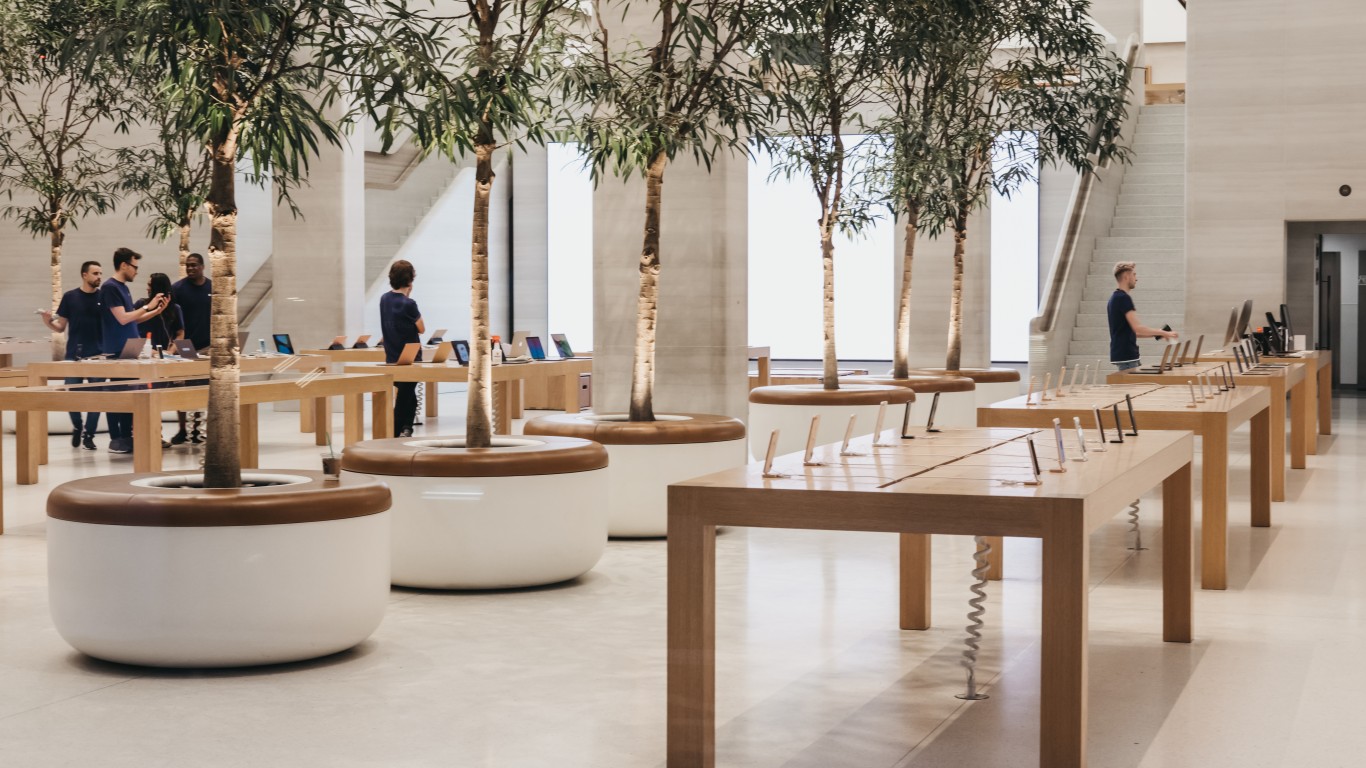Technology
What's Up With Apple: Testing WFH for Store Employees, Testing 3nm Chips, and More

Published:

Apple Inc. (NASDAQ: AAPL) CEO Tim Cook has been adamant about having company employees spend at least three days a week at their desks in the company’s offices. Now, Apple is set to test a program that will allow Apple Store employees to work from home (WFH).
The company plans to launch a test program it calls “Retail Flex” that will split Apple Store employees’ time between working in the store and working from home. Citing unnamed sources, Bloomberg reports that Apple is “acknowledging that consumers may continue to prefer online shopping even as the pandemic eases.”
These sources also said that Apple Store employees would be able to work some weeks at the stores and other weeks from home: “From home, workers will handle online sales, customer service and technical support.” Employees would alternate from on-site and remote work, depending on demand for in-store service and online shopping during a given period. Apple, of course, did not comment on the report.
Apple and Intel are lined up to become initial buyers of next-generation 3-nanometer (nm) chips from Taiwan Semiconductor Manufacturing (TSMC). Sources cited by NikkeiAsia said the two U.S. companies are currently testing the production technology and that commercial quantities are expected to be available by the second half of 2022.
Because Apple is TSMC’s biggest customer, its participation in the 3nm program is no big surprise. What may be surprising is that Nikkei’s sources say the first device to use the 3nm technology will be the iPad. The iPhone 12 series uses TSMC’s 5nm technology, and the next-generation iPhone, due next year, is expected to use an interim 4nm process.
Intel is already using TSMC to manufacture its 7nm processors because it has stumbled repeatedly in developing its own production of these chips. According to TSMC, 3nm technology increases performance by 10% to 15% and reduces power consumption by 5% to 30%.
On the legal front, Spain’s National Commission on Markets and Competition (CNMC) has initiated “disciplinary proceedings” against Apple and Amazon for “possible restrictive competition practices … in the sectors of Internet sales of electronic products and the provision of marketing services to third-party retailers through online platforms (Marketplace) in Spain.” According to the CNMC’s announcement, the proceeding “does not prejudge” the outcome of the investigation, which could last for up to 18 months.
California-based medical device maker Masimo has filed a complaint against Apple with the U.S. International Trade Commission (ITC), charging that Apple Watch Series 6 infringes five of the company’s patents. According to Bloomberg, Masimo first filed suit against Apple in January of last year, “accusing [Apple] of stealing trade secrets and improperly using Masimo inventions related to health monitoring in its Apple Watch.”
Thank you for reading! Have some feedback for us?
Contact the 24/7 Wall St. editorial team.